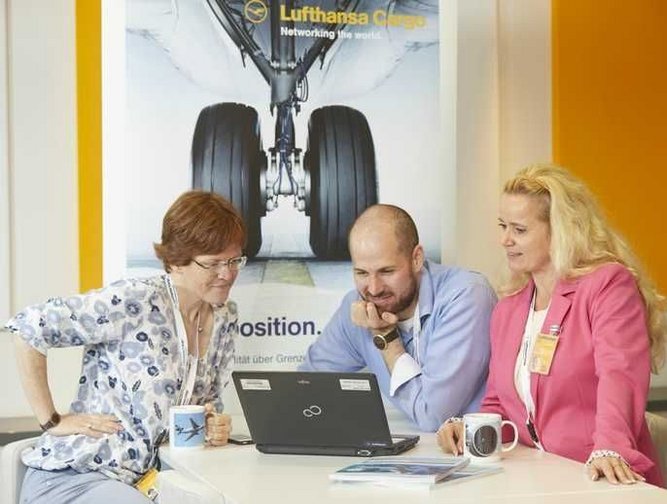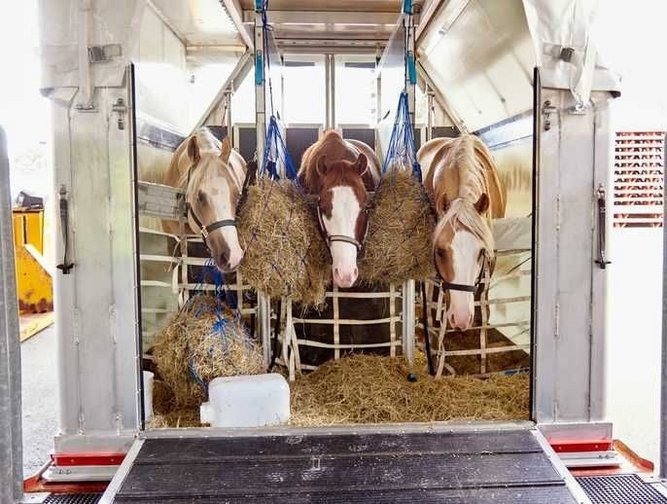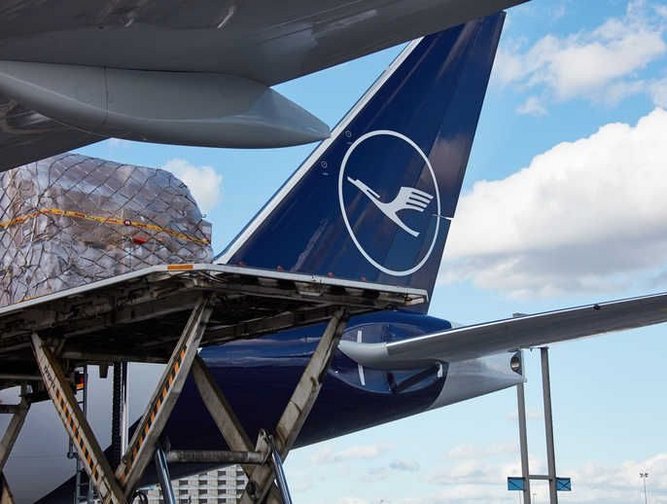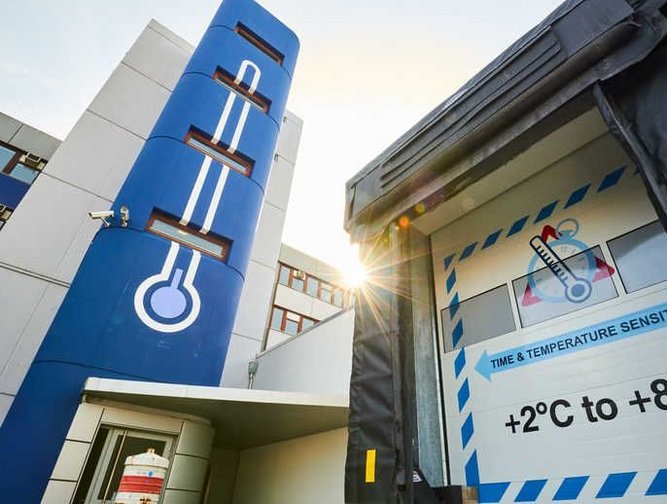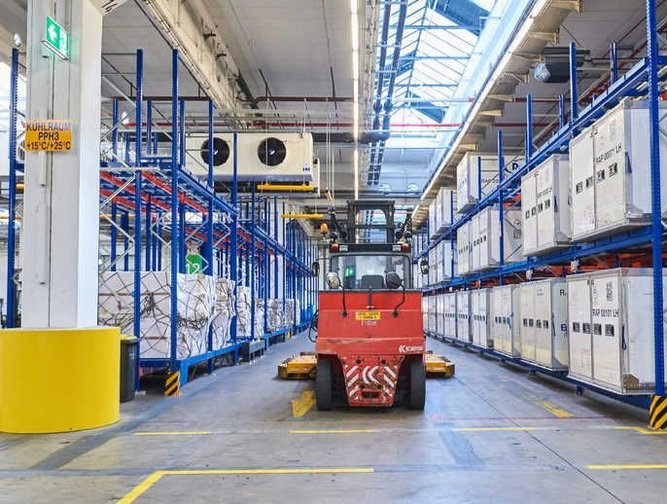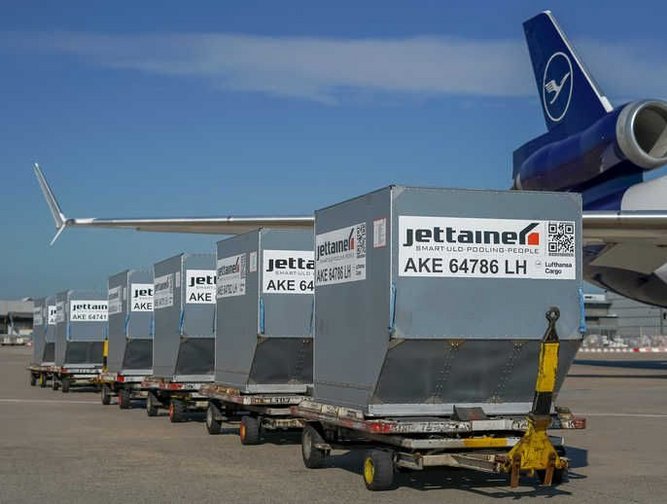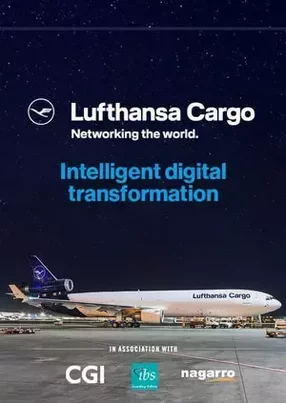Lufthansa Cargo: digitalising B2B air freight with a simple, intelligent transformation
As one of the world’s leading air freight carriers, Lufthansa Cargo provides tailored logistics solutions to customers in over 100 countries, transporting an average of 1.6mn tons of freight and mail each year. With over two decades of experience at Lufthansa Cargo between them, Jochen Göttelmann, Chief Information Officer (CIO), and Boris Hueske, Head of Digital Transformation at Lufthansa Cargo are bringing together technology and business to better serve the company’s customers. “Mostly I’ve worked in roles where new services, solutions and strategies needed to be developed, as well as setting up new companies for Lufthansa Cargo. Now I'm transforming our business into something much more digital than it was in the past,” says Hueske. He explains that “the level of technological adoption in B2B business models has traditionally progressed more slowly than in the B2C space. In the context of B2B, air freight is lagging behind other B2B environments.”
We sat down with Hueske and Göttelmann to find out about the ways in which Lufthansa Cargo’s simple, intelligent digital transformation will close that gap and maintain the company’s position at the leading edge of the air freight sector. “The speed and momentum we are currently gaining in our industry is tremendous”, says Göttelmann, who believes the digital gap between the air freight industry, like other B2B sectors, and B2C businesses will be closed in a couple of years. Göttelmann is a firm believer in the need to increase technology saturation throughout the company. “There is no innovation without technology. Sometimes technology is driving innovation and sometimes it is enabling it, but without technology there is no innovation.”
As the head of Lufthansa Cargo’s digital transformation, Hueske is taking a methodical, step by step approach, leveraging simple steps to produce effective results. “The process of change obviously starts with some basic things,” says Hueske. “More digitisation, for a start. We’re making the move from paper into data: that's what we did over the past few years, starting with one of the basic documents we use in our industry, the air waybill.” Waybills are a form of receipt issued by airlines for the transportation of goods. “Over the past few years, we have achieved a high rate of electronic air waybills,” says Hueske. “We started over 10 years ago with just the waybills and now about 80% of all the company’s documents are electronic. That is not only important for our processes, but now we also have data through which we can, for example, offer new services to our customers. We saw the same thing on the passenger side with the adoption of electronic ticketing and everything that followed that, like self check-in and mobile apps.” Lufthansa Cargo is now effectively developing services for customers based on data and technology. “We also invested in improving our IT capabilities using a new backend handling system,” Hueske adds. “We're investing in a new booking engine, which is the core system we use to offer our services to customers. They can already book online, but we’re upgrading to a modern version, which is really helping us offer a kind of e-commerce solution for air freight transportation services.” The new booking system uses online spot pricing, allowing customers to enter capacity requests and receive price quotes immediately. “It sounds a little bit strange, but in our industry, this is not widely available yet,” Hueske explains. “In the passenger industry you can easily go online and see if your family gets seats on a flight. You see your price, you push the button, and then it's booked. That is not yet available in the air freight industry, and that's what we are working on: enabling customers to book directly through our own e-portal.”
Lufthansa Cargo’s core system is developed and maintained by IBS Software, a provider of IT solutions to the travel, transportation and logistics industries. “With IBS, we do not just have a traditional provider relationship, but rather a partnership on eyes’ level,” says Göttelmann. “IBS is one of the most important partners to keep up our momentum. Although it's a standard product, they are still highly willing to invest in further product development.” Another important partner for the digital transformation is Nagarro, a software and business consulting firm headquartered in Munich. Göttelmann describes Nagarro as “the main providers for our internet portal, and one of the two leading providers of our booking engine”. But Lufthansa Cargo doesn’t need to rely on external vendors only. With Lufthansa Industry Solutions they have a strong captive partner especially for individual software projects and major IT service packages like the complex BI and Analytics environment, or the specific Cargo revenue accounting.
Hueske and Göttelmann are positive that this transformation will be beneficial to both Lufthansa Cargo and its customers. “The traditional process would involve the shipper using a forwarder to send something to its consignee, picking up the phone, asking for quotes, getting back quotes, deciding routes, confirming shipment details, ordering the airline and so on,” says Göttelmann. “There will always be a physical flow. Shipments will be trucked from the shipper to the airport, flown from Europe to Asia or America etc., and then need to be trucked again from the airport to the consignee. This won’t change as long as physical goods are being shipped.” However, alongside the movement of physical goods is a flow of information, traditionally taking the form of “some paper” attached to the shipment. By moving away from analogue record-keeping and other paperwork, Lufthansa Cargo is accelerating the process through which its clients can “request and receive quotes, confirm capacity and prices online”, Göttelmann notes. “Here, spot pricing is one of the important factors. Clients receive a quote according to shipment dimensions, weight, loadability checks, embargoes, regulations – whatever is necessary to fly that shipment.” With Lufthansa’s new online portal, customers will receive all relevant information in a matter of seconds. Hueske says: “The whole development from this analog business – this manual transfer of information, paper and documents between all parties involved – to a digital one, is a severe change. It's an evolution, but it is happening at an ever-increasing speed, and that makes it so significant.” At the core of Lufthansa Cargo’s front-end transformation is the drive to be convenient and efficient for customers. “We have to be efficient on the B2B side with lean, digital, automatic processes, and being convenient for human beings booking our services,” says Hueske.
In addition to Lufthansa Cargo’s redesigned customer experience, the company is digitally transforming behind the scenes. “The whole Lufthansa Group, not just Lufthansa Cargo, is adopting a future-proof IT strategy”, says Göttelmann. “We’re moving from a dedicated, on-premises data centre to a multi-cloud environment. With this we can scale up performance instead of running through lengthy ordering processes, installing servers in the rack and de-installing again. We’ll be using IT infrastructure resources as we need them. It’s capable and elastic, and it goes hand in hand with the introduction of Office 365 and Dynamics 365 as web-based workplace environment and CRM tool.” CGI, a Canada-based software and service company with global delivery capabilities, is one of Lufthansa’s partners for the could transformation.
Lufthansa Group is also updating its cybersecurity measures in order to match the emerging threats of a digitalising industry. “We’re investing a lot in processes, hardware and software protection, and, particularly, training and awareness. Usually, the weak point in the system is not the computer or the network; too often it’s a user who falls into a tech trap,” says Göttelmann. “We're investing on all levels,” he confirms.
In all cases, a transformation of the technology used by a company equates to a transformation of the culture within that company. At Lufthansa Cargo, both Hueske and Göttelmann agree this is the case. “There is a cultural shift necessary,” says Hueske. “One important thing is to really instill the idea of IT as a production factor. It is important that we as a company understand the value generation through software in a digital world.” After the introduction of agile project methods in the last two years, now Göttelmann and his leadership team are taking the next steps. An adoption of DevOps principles will help to make internal processes leaner, increase software quality and shorten release cycles.
Lufthansa Cargo’s digital transformation will carry the company forward into the next three years with an eye to becoming a more attractive employer to top flight talent in the tech sector. “If you look at universities, hardly anybody knows about the air freight business,” says Göttelmann. “Hardly any other industry has such challenging problems to solve in the coming years. Every potential candidate should be keen to knock on our door and ask to work for us. We want to be acknowledged and perceived as one of the most attractive employers in the industry.” As for Lufthansa’s technological future beyond 2022, Hueske laughs: “I think, considering the dynamic world we live in, we shouldn’t be doing perspectives more than three years in advance.”
